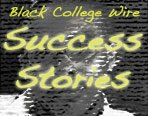| Operation HOPE to Teach Students About Finance |

|

|

|
| By Michelle D. Anderson -- Black College Wiire | |
|
When he was 18, John Hope Bryant spent six months homeless. He lived in his car until he could find another place to live. “People talk about financial illiteracy statistically, but for me, it was reality,” says Bryant, who is the founder, chairman and chief executive officer of Operation HOPE, an economic empowerment organization that describes itself as “America’s first non-profit social investment banking organization.” 
WikiMedia Commoms
John Hope Bryant
The title of the program borrows from Bryant's 2002 book, "Banking on Our Future: A Program for Teaching You and Your Kids about Money." Growing up, Bryant witnessed firsthand how the lack of financial literacy can put on strain on personal relationships—his parents divorced over money. Jane E. Smith, executive director of LEADS at Spelman College, will be responsible for implementing the program at Spelman. Established in 2003, LEADS promotes leadership, financial empowerment and economic development among black women. Smith says Spelman students have had several opportunities to become financially savvy over the past few years with the college’s Investment Club, Economic Empowerment Initiative and other programs. In October 2007 Spelman and Lehman Brothers Holding Inc. announced the Lehman Brothers Center for Global Finance and Economic Development. After the collapse of Lehman Brothers last year, the future of the Center remained uncertain, although a spokesperson told Black College Wire in September, “So far, we have been able to add Chinese to our curriculum, create new office space and video conferencing capability, and recruit a new leader for our global finance and economic development initiative.” “Banking on Our Future, College Edition” will implement a series of workshops that teach students about effective money management, creating and implementing a budget during a recession, and personal finance. Bryant hopes the program will positively impact HBCU students to help their alma maters after graduation. “Culturally, we need to build a spirit of philanthropy,” Bryant said. 
johnhopebryant.com
Bryant, Tisdale
While designing the program, Tisdale, a broadcast journalist who has reported for major news organizations including CBS, CNN, PBS, and The Wall Street Journal/ Dow Jones, drew upon the research she conducted for her 2007 book, “The True Cost of Happiness: The Real Story Behind Managing Your Money.” “There was something about money that was giving us a hard time—and it has nothing to do with money,” said Tisdale, who became an Operation HOPE board member last year. While conducting the six-month research for her book, Tisdale found that she was interviewing more psychologists and sociologists than financial advisors. Tisdale notes that many people who go through debt reduction programs fail to learn anything about their past financial failures. “[They] never looked at the root cause of what got them there in the first place,” Tisdale said. “Instead of addressing the solution, we’re looking at the cause. ‘Banking On Our Future’ is one of the most important steps of breaking that cycle.” In June 2008, Operation HOPE announced that it would begin an initiative in collaboration with the White House Initiative on HBCUs to educate students at all 105 of the nation’s HBCS about money. And in November, Operation HOPE released results from a study that indicated that black high school and college students were more likely to spend rather than save their money and were less likely to have a bank account. About 10 HBCUs are expected to launch “Banking on Our Future” on their campuses this year, including Morehouse College and Howard University. All 105 of the nation’s HBCUs are expected to adopt the program within five years, program officials say. For Bryant, the initiative is also a call for young African-Americans to stop “profiling” and become financially literate and independent. The Compton and South Central Los Angeles native says black people are more inclined to live beyond their means not only because of financial illiteracy, but as a result of low self-esteem. “We’ve had self-esteem and identity issues. We compensate for low self-esteem by ‘profiling,’—like buying a car we can’t afford,” says Bryant, who became vice-chairman of the U.S. President’s council on financial literacy last January. Bryant says college students have a little-to-no financial literacy and noted that college students are the second group after senior citizens known for filing bankruptcy. “They’re at a critical moment,” Bryant says. “They have a lot to take in during a short period of time.” Michelle D. Anderson is a student at Spelman College and a regular contributor to Black College Wire. |
|
| Posted Jan. 16, 2009 |
| < Prev | Next > |
|---|



